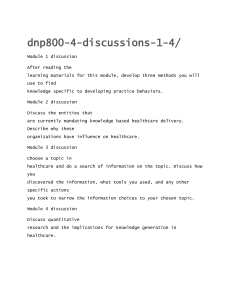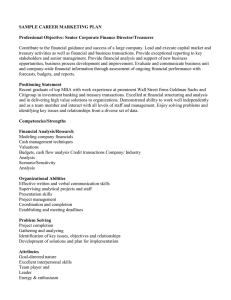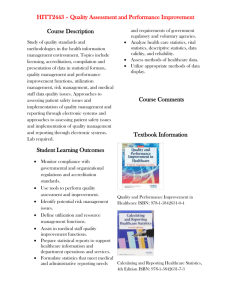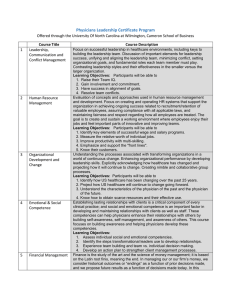MHA and MSHA graduates exhibit 25 essential leadership competencies. ... developed in and out of the classroom throughout the students'...
advertisement
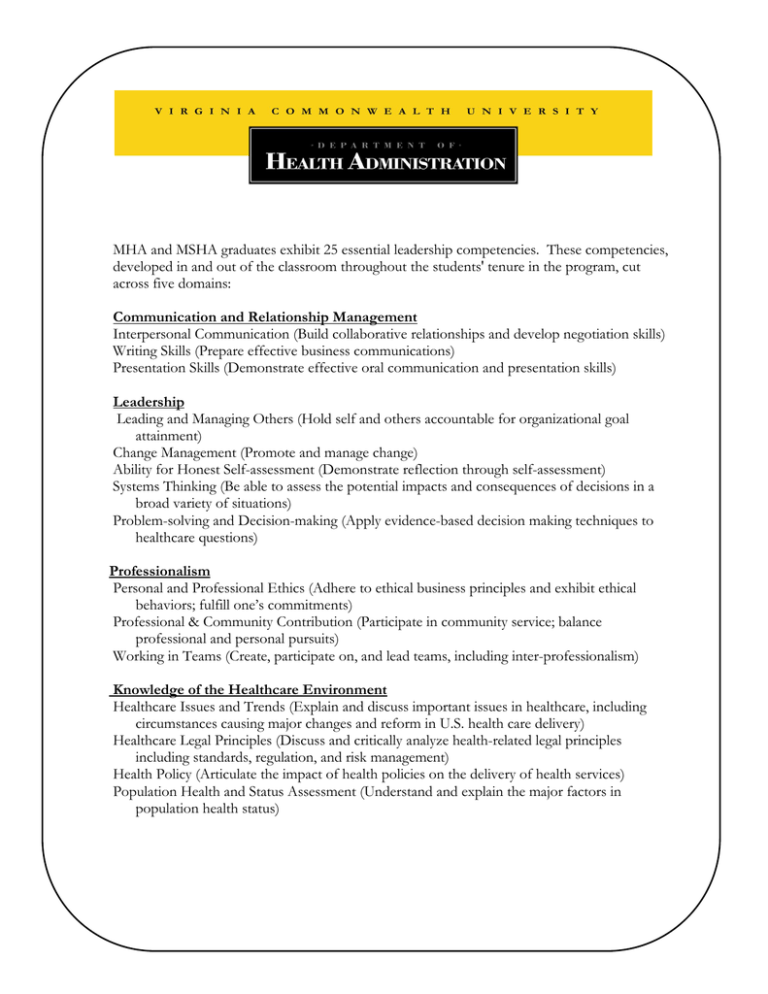
MHA and MSHA graduates exhibit 25 essential leadership competencies. These competencies, developed in and out of the classroom throughout the students' tenure in the program, cut across five domains: Communication and Relationship Management Interpersonal Communication (Build collaborative relationships and develop negotiation skills) Writing Skills (Prepare effective business communications) Presentation Skills (Demonstrate effective oral communication and presentation skills) Leadership Leading and Managing Others (Hold self and others accountable for organizational goal attainment) Change Management (Promote and manage change) Ability for Honest Self-assessment (Demonstrate reflection through self-assessment) Systems Thinking (Be able to assess the potential impacts and consequences of decisions in a broad variety of situations) Problem-solving and Decision-making (Apply evidence-based decision making techniques to healthcare questions) Professionalism Personal and Professional Ethics (Adhere to ethical business principles and exhibit ethical behaviors; fulfill one’s commitments) Professional & Community Contribution (Participate in community service; balance professional and personal pursuits) Working in Teams (Create, participate on, and lead teams, including inter-professionalism) Knowledge of the Healthcare Environment Healthcare Issues and Trends (Explain and discuss important issues in healthcare, including circumstances causing major changes and reform in U.S. health care delivery) Healthcare Legal Principles (Discuss and critically analyze health-related legal principles including standards, regulation, and risk management) Health Policy (Articulate the impact of health policies on the delivery of health services) Population Health and Status Assessment (Understand and explain the major factors in population health status) Business and Analytical Skills Financial Management (Ability to compile and analyze financial data) Human Resources (Apply methods and techniques related to the management of health care organizations, employees and professional staff) Organizational Dynamics and Governance (Articulate and explain the roles, responsibilities, structures, and influence governing bodies hold in health care organizations) Strategic Planning (Ability to perform environmental analysis and develop strategic alternatives; discern competitive strategy; formulate business strategy based on evidence) Marketing (Analyze and assess markets, market segmentation, strategy, change and innovation) Information Management/Understanding and Using Technology Skills (Apply techniques and methods to plan, design, implement and assess information management and communication) Quality Improvement/Performance Improvement (Identify relevant problems and apply concepts of process improvement and patient safety) Quantitative Skills (Analyze data and interpret quantitative information) Planning and Managing Projects (Design, plan, implement and assess projects and develop appropriate time lines related to performance, structure and outcomes) Economic Analysis and Application (Analyze and apply economic theory and concepts and decision making)
